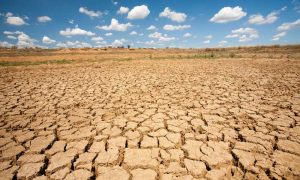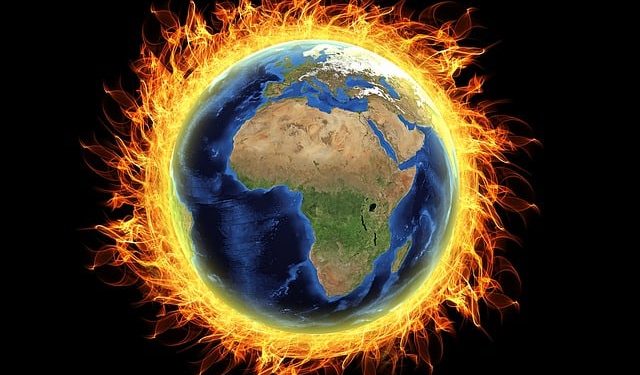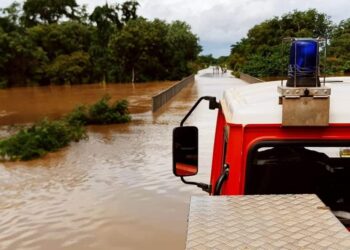Story, Louvier Kindo Tombe
Africa is feeling the heat. Every day, more and more extreme weather events are happening across the continent, destroying lives and displacing thousands. This new study by the University of Oxford is a clear indication that the situation is getting worse as days pass by.
“These conditions will pose further stress to the continent’s socio-economic development and energy networks,” says Dr. Radhika Khosla, Associate Professor at the Smith School of Enterprise and the Environment, leader of the Oxford Martin Programme on the future of cooling.
The study was based on the concept of “cooling degree days“, a method widely employed in research and weather forecasting to ascertain whether cooling would be needed on a particular day to keep populations comfortable.
The most countries to be affected according to the study are Central African Republic, Burkina Faso, Mali, South Sudan, Nigeria, Congo, Democratic Republic of the Congo, Chad, Uganda and Cameroon. Other countries might also be severely impacted if they are not traditionally prepared for increasing heat if climate targets are missed. Eight of the ten (10) countries with the greatest relative increase in uncomfortable hot days are expected to be in Northern Europe, with Canada and New Zealand completing the list. Switzerland, the UK and Norway will see an increase of 30% on days with uncomfortably hot temperatures.
Higher temperatures are noted for worsening many types of disasters, including storms, floods, and droughts. Heat also has important indirect health effects.
“Extreme heat can lead to dehydration, heat exhaustion, and even death,” says Dr. Nicole Miranda, Senior Researcher at the University of Oxford, and member of the Oxford Martin Programme on the future of cooling.
Heat conditions can alter human behavior, the transmission of diseases, decreases in water availability and crop yields, increasing risks of droughts and biodiversity loss, forest fires, among many others.
The research, shows that no country from Switzerland to the Central African Republic is safe from climate change.
“It should remind us of the need for global solidarity and cooperation in efforts to remain below 1.5⁰C warming,” Dr. Yaouba Sokona, Vice-chair of the intergovernmental Panel on Climate Change (IPCC), said.
The global analysis concluded that African countries not only had the highest cooling requirements historically, between 2009 and 2018, but will also face the highest surge in heat exposure if the planet warms by 2.0⁰C. This is particularly true for Central African countries, Burkina Faso and Mali suffering the highest increase with more than 250 additional cooling days. Cooling demand can no longer be a blind spot in sustainability debates.
“By 2050, the energy demand for cooling could be equal to all the electricity generated in 2016 by the US, EU and Japan combined,” says Dr. Radhika Khosla.

“We have to focus now on ways to keep people cool in a sustainable way.”
According to Dr. Yaouba Sokona, the situation predicts that cooling will soon no longer be a luxury but “a necessity across Sub Saharan Africa”.
It is also a clear indication that Africa is bearing the brunt of a problem they did not create. “This should further strengthen calls for climate justice and equity”, says Dr. Radhika.
The researchers however stressed that the findings in the report are a conservative estimate and does not consider extreme events like heatwave, which would come untop of this average increase.







